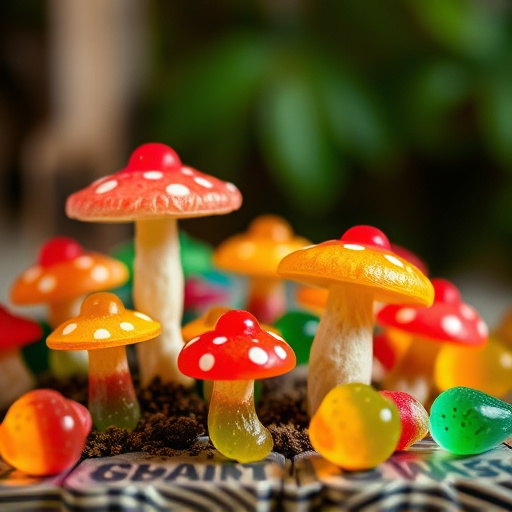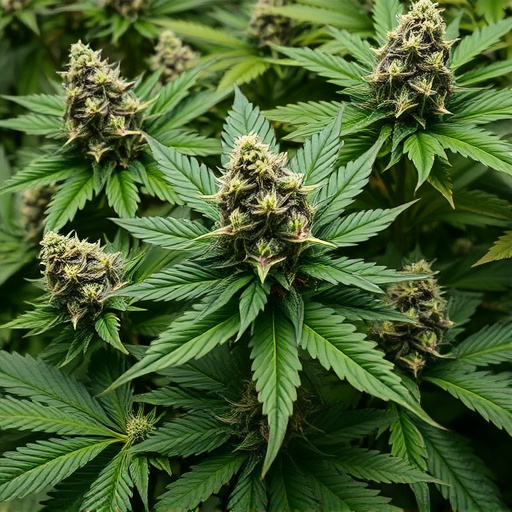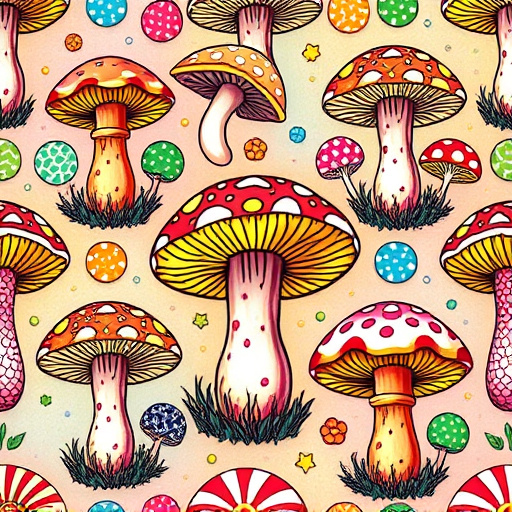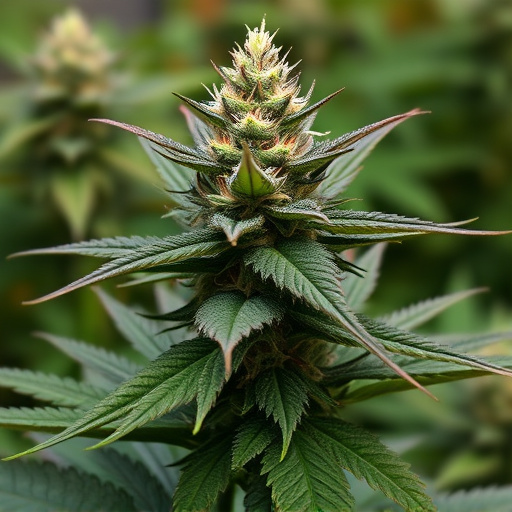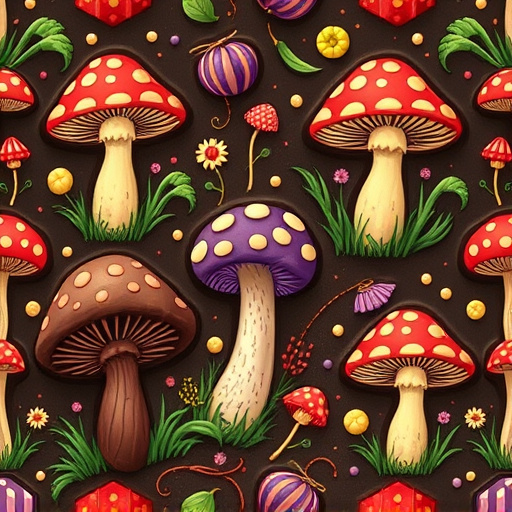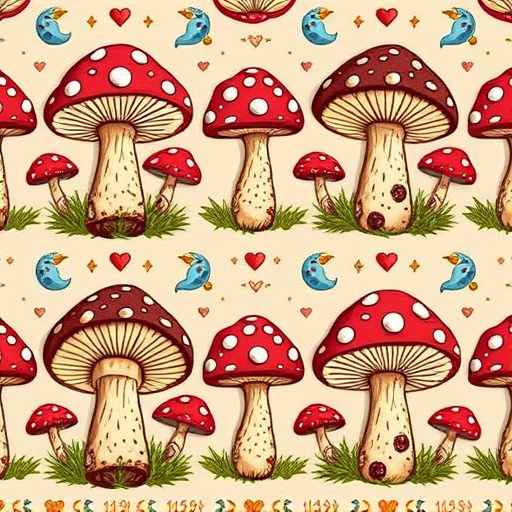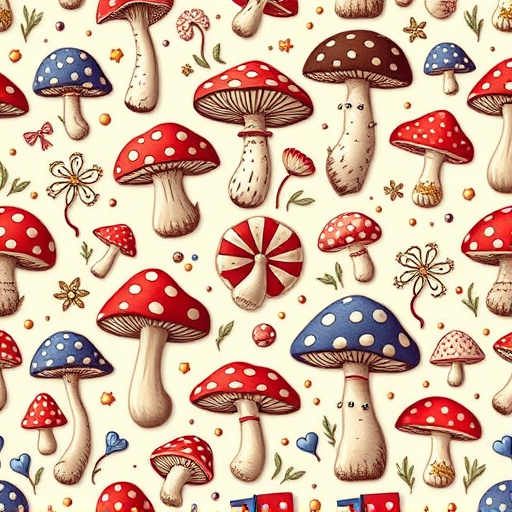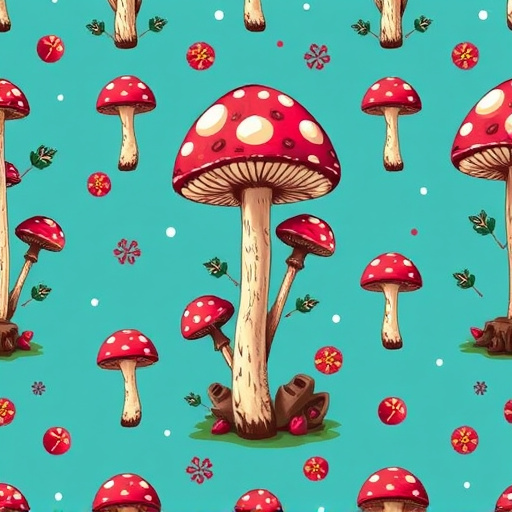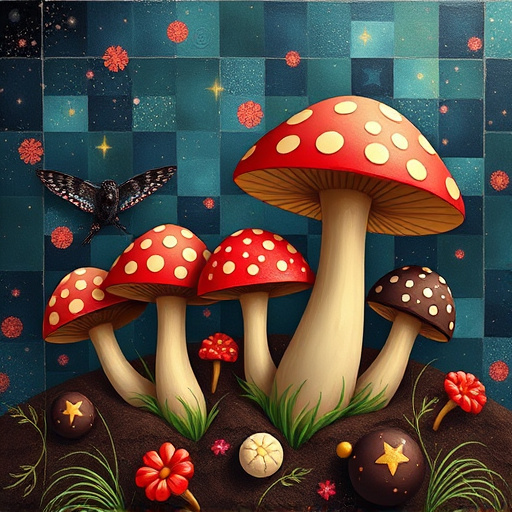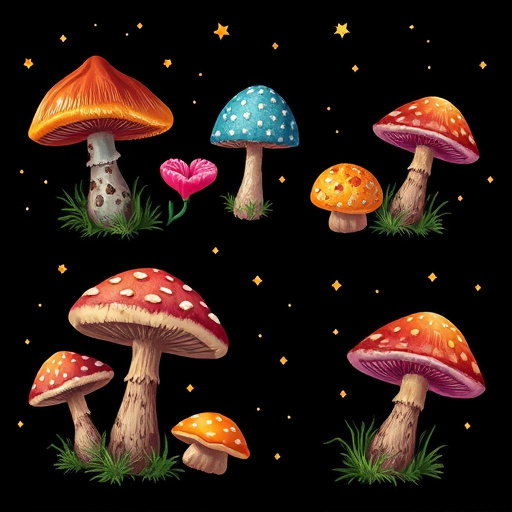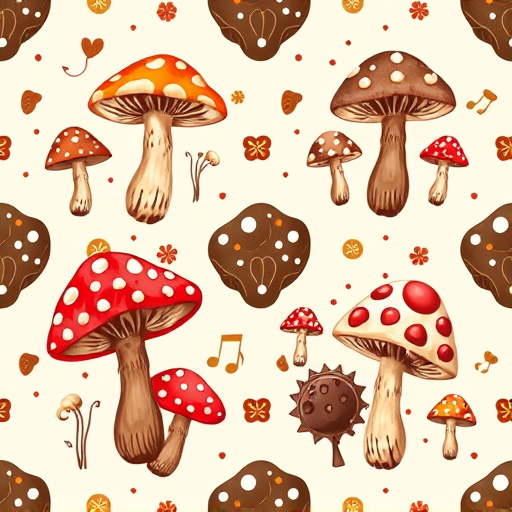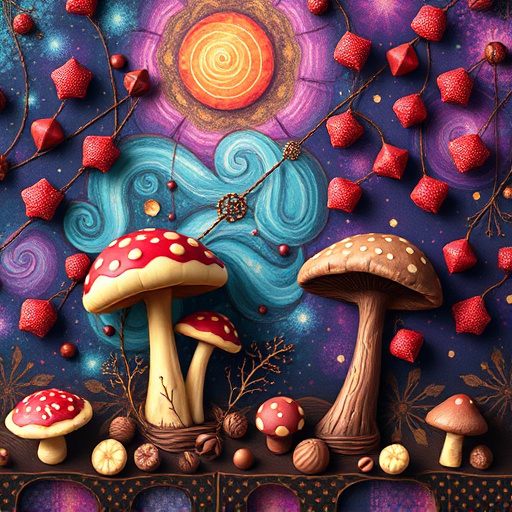Magic mushroom chocolates combine psilocybin—a psychoactive compound known for its serotonin receptor interactions—with the allure of gourmet treats. This blend offers a controlled way to explore therapeutic benefits, including potential mental health support, enhanced brain plasticity, and positive mood shifts. Research suggests microdosing magic mushroom chocolates may improve cognitive functions, creativity, mindfulness, focus, and resilience. As interest grows in natural wellness solutions, these chocolates open new avenues for neuroscience and mental well-being exploration, but further studies are needed to understand their long-term effects and optimal dosages.
“Unveiling the captivating world of High-Potency Magic Mushroom Chocolates, this article delves into the intersection of ancient folklore and modern science. We explore the brain plasticity benefits of compounds found in magic mushrooms, such as psilocybin, fueling recent interest in microdosing. From the laboratory to your kitchen or confectionery, we guide you through the process of creating these unique treats. Additionally, we navigate the legalities and glimpse into the future prospects of this evolving industry, considering its potential role in mental health treatments and shifting public perception.”
- The Science Behind Magic Mushroom Chocolates
- – Exploring the active compounds in magic mushrooms and their effects on brain plasticity.
- – Discussing the potential therapeutic benefits of microdosing and its recent popularity.
The Science Behind Magic Mushroom Chocolates
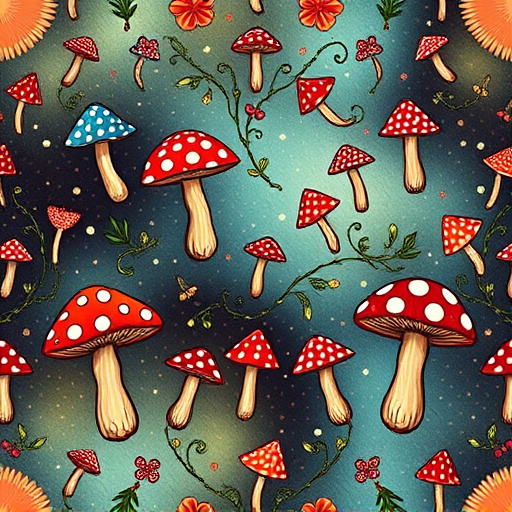
The science behind magic mushroom chocolates revolves around their active compounds, primarily psilocybin, which is known for its psychoactive properties. When consumed, psilocybin interacts with our brain’s serotonin receptors, leading to altered perceptions and heightened sensory experiences. This interaction doesn’t just trigger a ‘high’ but also influences brain plasticity—the brain’s ability to form new neural connections. Research suggests that this phenomenon may underlie the potential therapeutic effects of magic mushroom chocolates in treating conditions like depression and anxiety. By enhancing brain plasticity, these chocolates could promote mental flexibility and even contribute to personal growth and spiritual experiences.
Moreover, studies indicate that psilocybin-induced changes in brain activity can result in long-lasting positive shifts in mood and outlook. This suggests that magic mushroom chocolates might offer more than just a temporary escape. As researchers continue to explore the compound’s effects, the potential for these chocolates as a tool for mental health support gains traction, opening up new avenues in the field of neuroscience and wellness.
– Exploring the active compounds in magic mushrooms and their effects on brain plasticity.
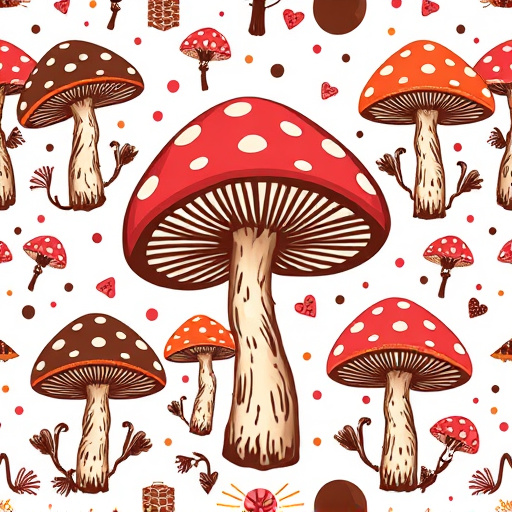
The active compounds found in magic mushrooms, primarily psilocybin and psilocin, have sparked significant interest within the scientific community for their potential impact on brain plasticity. Research suggests that these compounds can stimulate neurogenetics, promote the growth of new neurons, and enhance neural connections. When consumed, psilocybin is metabolized into psilocin, which binds to serotonin receptors in the brain, leading to altered states of consciousness and heightened sensory perception. This process may facilitate a unique opportunity for cognitive flexibility and creative thinking.
In the context of Magic Mushroom Chocolates, these compounds are often incorporated into edible forms like chocolates. The deliberate use of high-potency varieties could offer individuals a controlled way to explore the potential therapeutic benefits associated with psilocybin. By combining the powerful active ingredients with the allure of gourmet chocolate, consumers might engage in an experience that not only satisfies their taste buds but also fosters brain plasticity and enhances mental well-being.
– Discussing the potential therapeutic benefits of microdosing and its recent popularity.
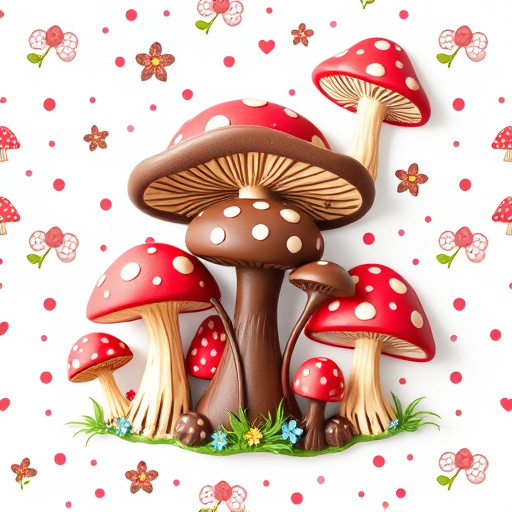
In recent years, there has been a growing interest in microdosing—ingesting miniscule amounts of psychedelic substances like psilocybin (found in magic mushroom chocolates) to achieve potential therapeutic benefits. This approach has gained traction as people explore alternative ways to enhance their mental and emotional well-being. Research suggests that microdosing may promote brain plasticity, improving cognitive functions and enhancing creativity. It is believed that this practice can help individuals achieve a state of heightened mindfulness and clarity, leading to improved focus and mental resilience.
The popularity of magic mushroom chocolates as a microdosing tool reflects a broader trend in the wellness industry. As people seek natural ways to manage stress and improve their mental health, these innovative treats offer an appealing option. However, it’s important to note that further scientific studies are needed to fully understand the long-term effects and optimal dosages for such practices.
Magic mushroom chocolates, while offering an intriguing combination of indulgent treats and psychoactive compounds, are a relatively new phenomenon. The science behind their effects on brain plasticity highlights the potential for therapeutic benefits, especially with microdosing. However, further research is needed to fully understand their impact and ensure safe consumption. As interest in these unique confections grows, exploring their capabilities within a controlled and informed environment is essential.

